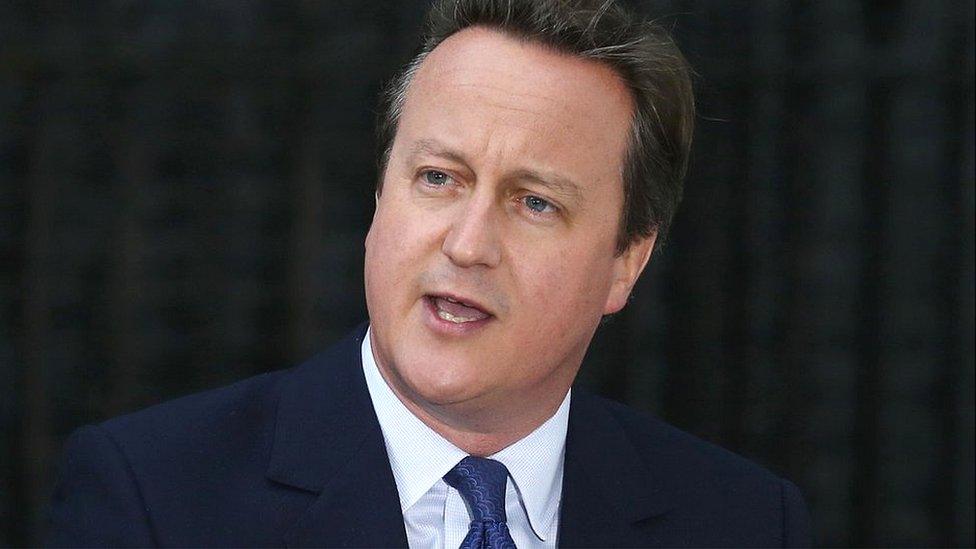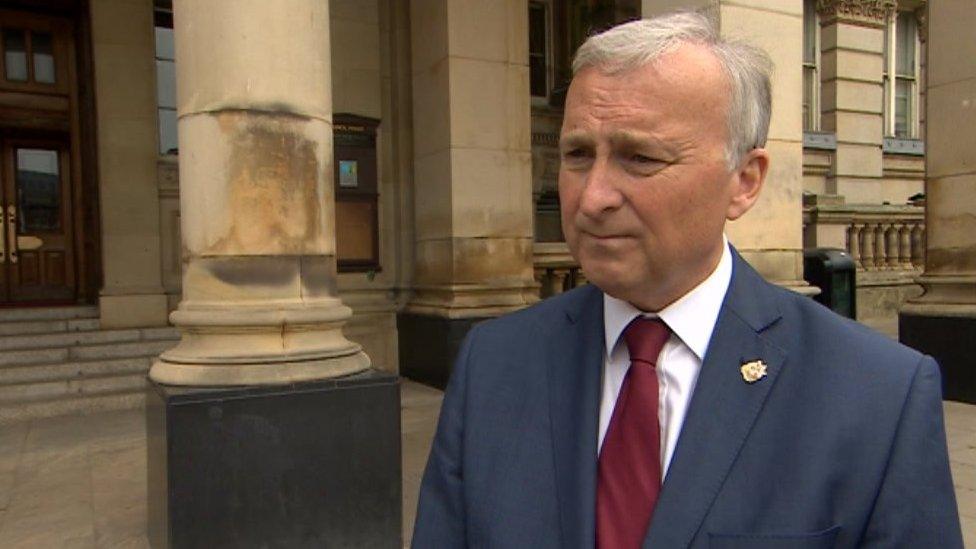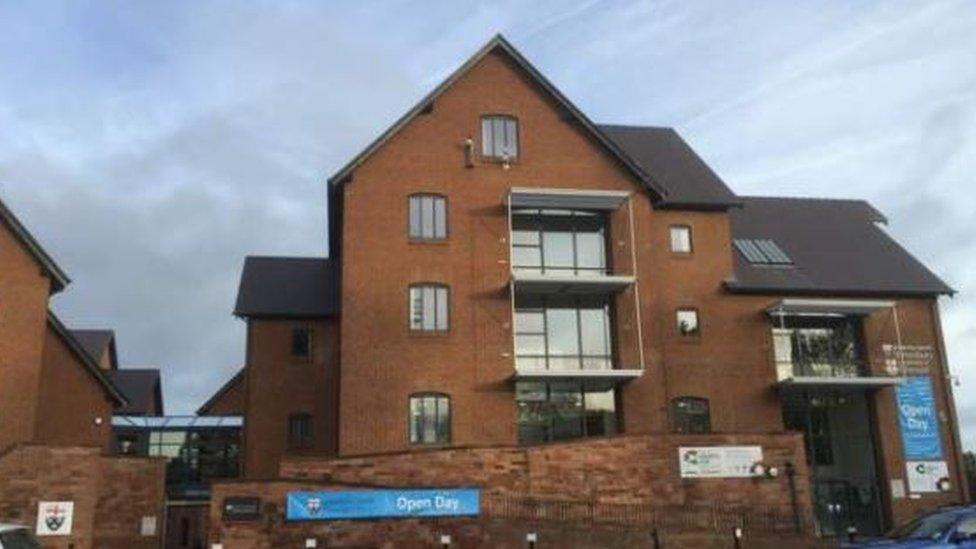Councils want ministers to match words with action
- Published

What was David Cameron in the middle of saying here?
"We'll do whatever it takes"
It sounds like brave talk. It's meant to. But there may also be an element of "weasel words" about the expression. It's what successive generations of politicians say when they face an enormous problem and they're not immediately sure what they can do to fix it: "Whatever....!"
I recall it's what Tony Blair said when MG Rover collapsed smack in the middle of the 2005 general election, threatening to derail his party's campaign in those key Midlands marginals.
David Cameron pledged to do "whatever it takes" so often he sounded like a stuck record. More recently, when Boris Johnson registered the enormity of the coronavirus emergency, he pledged his government would do, yes, "whatever it takes". Whatever that might be.
My blog of 25 March reported how the prime minister had invited local authority leaders to Number Ten to brief them about their crucial role in helping communities through the worst effects of the pandemic. "Local government is in the lead. Resources will follow," he assured them.
Six weeks on, that promise appears to be wearing thin.

Ian Ward leads a council as large as they come - but the larger they come, the harder they could fall
As Britain's biggest local authority, Birmingham often correspondingly suffers the biggest impacts during hard times. One estimate is that Covid-19 has already cost it more than £260m. Direct costs like housing rough sleepers and keeping poorer children fed and watered while their schools are closed account for more than £110m more.
A further £150m is lost through the closure of revenue-raising amenities like leisure centres. And as time goes by, more and more people can be expected to struggle with their council tax payments.
The city's Labour leader Ian Ward warns that the delivery of key services, like adult social care and children's services, will be "compromised" unless government funding is significantly increased.
Second City, Second Town

Shrewsbury Council HQ and a town first at being second
The Second City has "form" in this area of course.
Its perilous finances have been a well-documented source of angst between local Labour councillors and MPs on one hand and Conservative ministers on the other for much of the past decade. But when a similar alarm comes from the Conservative council in England's self-professed second largest town, we have to sit up and take notice.
Shrewsbury's town clerk, Helen Ball, tells BBC Radio Shropshire that the council's revenue from markets and park events has dried up while its costs continue to rise.
Shrewsbury and Atcham's Conservative MP, Daniel Kawczynski, wrote recently in the Local Government Chronicle: "If the Government doesn't step up and give local authorities the support they need, ministers will risk creating another national crisis."
The local government secretary and cabinet "Champion for the West Midlands", Robert Jenrick, points out that more than £3bn extra funding is being shared between county, district and unitary authorities, and that the larger authorities must help support the smaller ones. But Shropshire's unitary council says the extra £18m it is receiving doesn't even cover its own additional costs.
As this emergency wears on, it's hard to imagine the disputes now cutting through, as well as between our political parties, are going to fade away any more quickly than the virus itself.
Size Matters
By the way...
I could hardly mention England's second largest town without answering the inevitable next question: so which is the largest?
I am reliably informed that Weston-super-Mare is the largest civil parish by population, and that, like Shrewsbury, the town council inherited many of the functions of the old borough council during the local government shake-up in 2009.
As for which is our largest city, you may think that's obvious. But after the Thatcher government's local government upheavals in the '80s, Birmingham City Council's formidable Labour leader Sir Dick Knowles had other ideas. He pointed out the capital was really just an assortment of boroughs.
"Of course Birmingham is the biggest city", he declared triumphantly, "now that London has been Balkanised."
